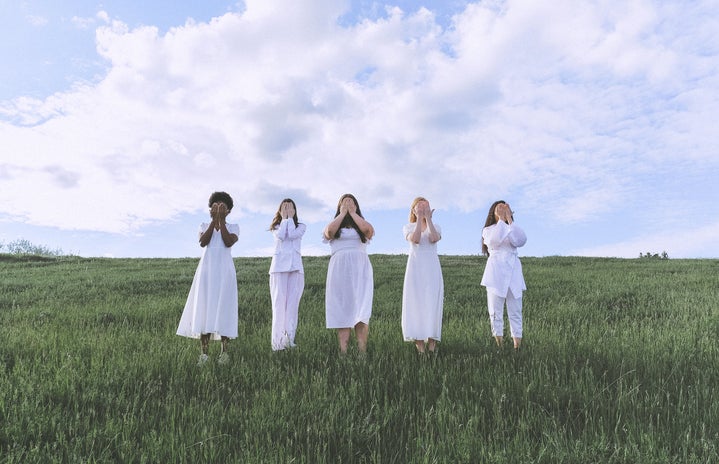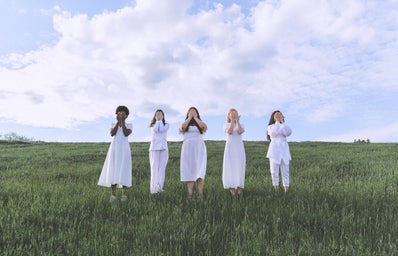Clothing is a key component of how women are viewed in both curated content and the real world. Rather than basing a woman’s identity solely on her clothing, it is important to recognize the ways in which these garments can extend or channel feminine magic- without defining it.
In previous years, the recognition of demonized femininity within broadcast media has been a hot topic. This is the concept of traditionally feminine entities- the color pink, designer fashion, makeup, etc. being associated with ignorance, promiscuity, and the classic “mean girl” trope. As we move away from this outdated mindset, we enter one in which fashion is uplifted in various digital subcultures; although, this itself comes with some significant drawbacks.
By now, we’ve all seen the think pieces regarding Hollywood’s demonization of hyper-femininity and the outcry of support for characters like Sharpay. (She wasn’t the villain!) And most of us agree that a woman should not be forced to reject certain aspects of her life- hobbies, interests, possessions, and more- simply to appeal to a male counterpart that prefers the “tomboy” or the “cool girl.” (Hello, Amy Dunne). However, each of these steps forward seems to land us five back.
The consensus of “girly” entities, like the Charlotte Tilbury highlighter wand and denim microskirts seem to be fairly positive, what with the rise of popular social media platforms that allow women to become digital influencers off a single video. The problem, then, arises when content consumers- usually young women- find themselves lost in a sea of aesthetic subcultures. So, who will you be today? Fairycore Grunge? Pink Pilates Princess? The Coquette?
And of course, these smaller divisions all come with a price tag- you can find a fairycore dress on Cider for $26.00 or spend $25.00 a week on matcha lattes to post atop your blush-colored yoga mat. Do you see what I’m getting at? After recognizing the power that fashion and feminine concepts had on shrouding the identity and mental dexterity of female characters, we continue to proliferate these TikTok subcultures dependent on real women attaching their worth to material goods.
Fashion is certainly an outlet for self-expression, meaning it exists as an outward projection of identity. Clothing pieces and material items should not reflect inwards to make up the base of your sense of self. This becomes especially problematic when we consider women of lower income struggling to find a place of belonging amongst these subcultures that are inclusive only to those who can afford it.
TikTok has even coined these subcultures as “the new demographics.” In Carmen Maria Machado’s short story, “Real Women Have Bodies,” the women in question begin to physically fade into invisibility, then find themselves being sewn into extravagant dresses- that is, a stitching needle plunged through flesh and out again. Are we not in a state of the same obsession? The same reliance on visually attractive goods to define our state of being?
For far too long women have been boiled down to objects that exist only when embellished by a greater jewel. A woman’s identity is much more than the garments she adorns or the makeup she applies. Obviously, the driving forces behind the issues mentioned are not that easy to dismantle- misogyny, consumerism, and capitalism run rampant in our daily lives. However, what we choose to do with new knowledge provided to us matters substantially.
By understanding the way in which inconsiderate and exclusive systems inform our self-perception and spending habits, we can adjust our actions accordingly to create a healthier and more dynamic image of ourselves and our female counterparts.


